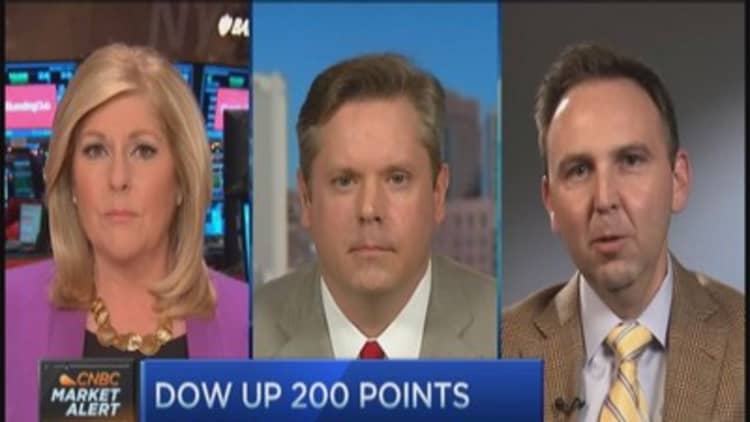
U.S. crude fell below $60 a barrel on Thursday, the first time in five years that it breached the psychologically-important support level, as oil markets extended this week's losses on oversupply concerns.
New York Mercantile Exchange's front-month West Texas Intermediate contract for U.S. crude settled down 99 cents, or 1.6 percent lower, at $59.95 per barrel, its lowest close since July 14, 2009. WTI crude continued to slide in after-hours trading and was last down nearly 3 percent to $59.20 in electronic trading.
The contract has lost almost 9 percent this week and roughly 45 percent from a June high above $107 a barrel.
Traders warned that a bottom for crude remained elusive after a six-month selloff.
U.S. consumer spending advanced at a brisk clip in November, Commerce Department data showed, as lower gasoline prices gave the holiday shopping season a boost.
Norway's rate cut and speculation of more European stimulus helped steady the crude market after Wednesday's 5 percent price drop, as did talk that some oil drillers were moving to cut exploration and production.
Read More
"For the moment at least, we're focused on the positives of this oil drop rather than the negatives like deflation and freeze on investments in energy spending," said Phil Flynn, analyst at the Price Futures Group in Chicago. "That said, we're not getting much of a bounce, considering how hard it has been sold off."
On Wednesday, prices collapsed after U.S. crude inventories rose unexpectedly and OPEC's most influential voice, Saudi Arabia's oil minister, again shrugged off the idea of cutting output.
Read MoreCratering oil price blamed on US production, Saudi 'treachery'
Some traders said prices could churn as market players speculate about possible OPEC output cuts if Algeria and Venezuela convince the group to hold an emergency meeting early next year. Some doubt the Saudis would agree to cut output even then.
"There's nothing the rest of OPEC or the world could do to pressure the Saudis," said Tariq Zahir, managing member at Tyche Capital Advisors in New York.
While low prices will discourage exploration and drilling in some places, he said, other producers who could still profit at lower prices may ramp up output to boost revenues through higher volume.
"If prices were to hit the low fifties, (some) non-OPEC members are likely to raise production, because the only way they can get more revenue is to sell more oil at such prices."

